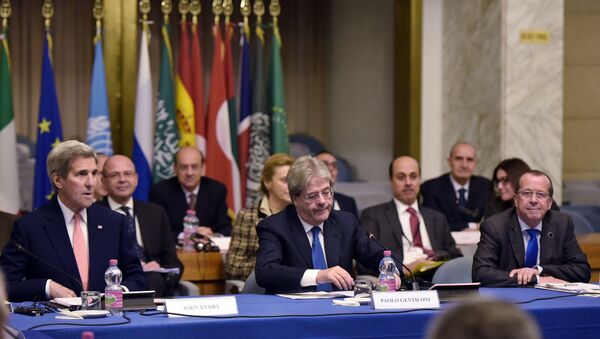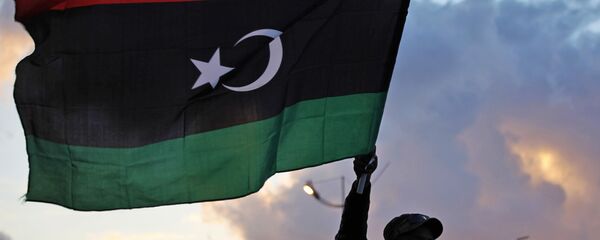Delegates from 16 countries, the African Union, the Arab League and the UN, have backed the formation of a national unity government in Libya, confirming the deal would include economic and security support to help stabilize the North African country where Daesh, also known as ISIL, have a foothold.
Ministerial Conf in Rome in support of peace efforts in #Libya in the presence of Libyan Political Dialogue members pic.twitter.com/wocbHPHki8
— Martin Kobler (@KoblerSRSG) December 13, 2015
After months of protracted negotiations, a deal is set to be signed on December 16 to create, within 40 days, a national unity government that would then be given security assistance from outside parties to ease the conflict and concentrate on battling Daesh.
Four years after the US-led coalition of western forces attacked Libyan government forces in an effort to topple Muammar Gaddafi before turning its back on the nation, which imploded into civil war — the United Nations finally proposed a unity government, but talks between the various factions in Libya stalled the deal.
At #Libya conference in Rome today, Italy's foreign minister says int community will 'tackle threat posed by [IS] in Libya in coming months'
— Mary Fitzgerald (@MaryFitzger) December 13, 2015
Libya's recognized government has operated out of the east of the country since last year when an armed faction called Libya Dawn took over Tripoli, set up its own government and reinstated a former parliament known as the GNC.
The UN proposal came after months of protracted negotiations between delegates from both sides, who have faced pressure from hardliners and from continued fighting on the ground that has halted part of Libya's oil production.
Today on my blog: The Libyans’ responsibilities – and our own – for the future of #Libya https://t.co/429fPOvCVD pic.twitter.com/c9Akykc85f
— Federica Mogherini (@FedericaMog) December 13, 2015
Chaos After Fall of Gaddafi
Asquith, who served as Britain’s ambassador in Tripoli from 2011 to 2012, said the US-led military intervention in the first Libyan civil war was to assist opposition forces fighting against Gaddafi’s government. It led to a vacuum in the aftermath caused by a failure to work with the new government to re-build the nation.
The new Libyan government called for the NATO mission be extended to the end of 2011, the UN Security Council voted to end NATO's mandate for military action.
"I hear time and again, that – if the international community had stepped in and said 'we’re behind you, you on the streets'. We need to support you in that protest – then maybe we could have changed the balance," said Asquith.



